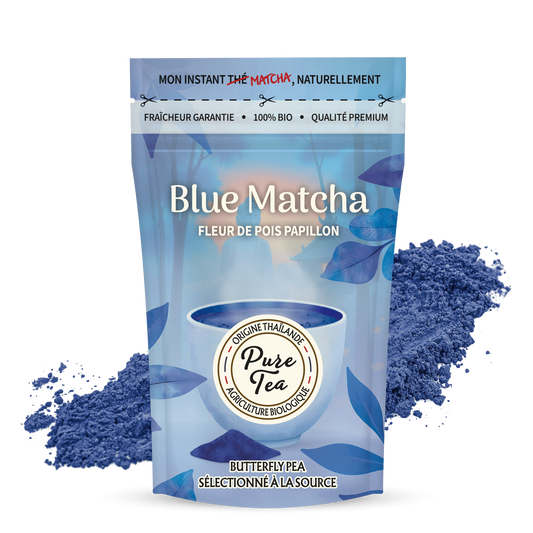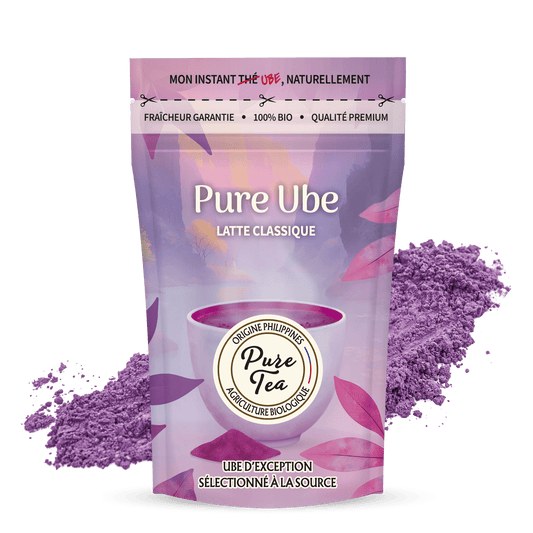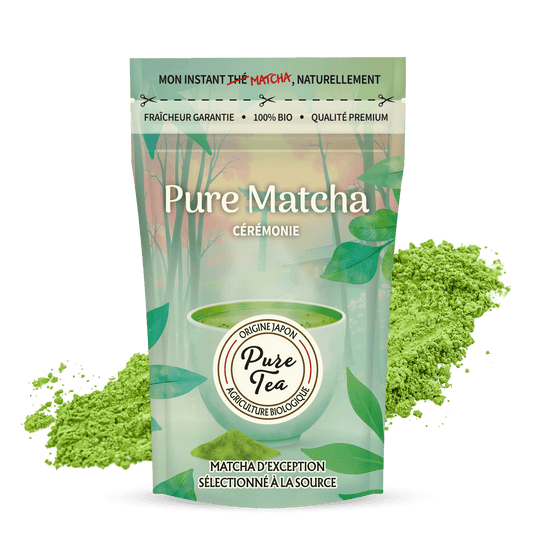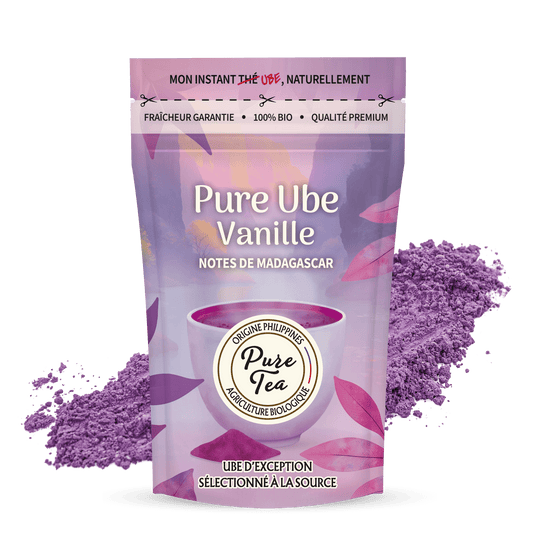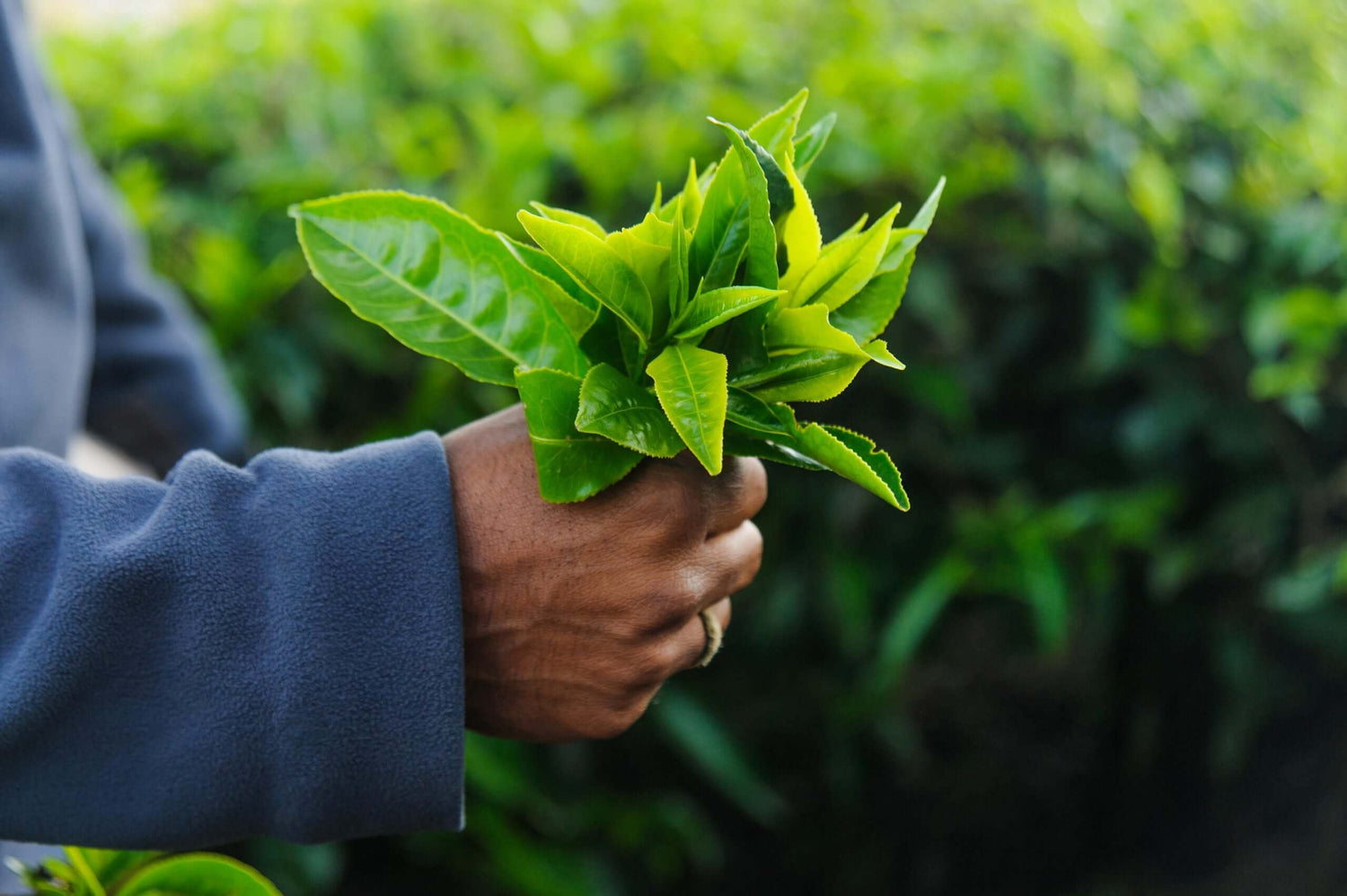Black tea, a true treasure of nature, has fascinated tea lovers around the world for centuries. More than just a hot drink, it’s a genuine cultural heritage that spans eras and continents. In this in-depth article, we’ll explore the secrets of this exceptional infusion, from its mysterious origins to its unexpected health benefits.
The Fascinating History of Black Tea: From Asian Mountains to Your Cup
Legendary Origins
The story of black tea begins over 5,000 years ago in China, but its oxidized form as we know it today only appeared in the 17th century. Contrary to popular belief, black tea was not the first type of tea consumed. The Chinese mainly drank green tea until an accidental discovery changed everything.
According to legend, merchants transporting green tea to Europe saw their cargo ferment during the long sea voyage. Rather than discard this precious product, they sold it to Europeans, who were won over by its robust taste and amber color—and kept asking for more. That’s how the black tea industry was born!
Colonial Expansion and Democratization
In the 19th century, the British, who had become avid black tea drinkers, developed plantations in India (notably in the Assam region) and in Ceylon (now Sri Lanka). This colonial expansion met the growing European demand and created new varieties of black tea with unique characteristics.
The Science of Oxidation: How Green Tea Becomes Black
The Transformation Process
The transformation of green tea into black tea is a fascinating process of enzymatic oxidation. Here are the key steps:
-
The Harvest: Fresh Camellia sinensis leaves are picked, usually the first two leaves and the terminal bud.
-
Withering: The leaves are spread out for 12 to 20 hours to lose about 50% of their moisture.
-
Rolling: This crucial step breaks the leaf cells, releasing the enzymes that trigger oxidation.
-
Oxidation: This is the magic phase! The leaves are exposed to air for 2 to 4 hours. Polyphenols oxidize, turning the green color to brown-black and developing characteristic aromas.
-
Desiccation: High-temperature drying (90-95°C) stops oxidation and locks in aromas.
Unique Chemical Compounds
During oxidation, the catechins in green tea turn into theaflavins and thearubigins, which are responsible for the reddish-orange color of the brew and its specific antioxidant properties. This chemical transformation also creates new aromatic compounds, giving black tea its unmatched flavor complexity.
The Scientifically Proven Benefits of Black Tea
An Ally for Your Cardiovascular Health
Recent scientific studies show that regular black tea consumption can reduce the risk of cardiovascular disease by up to 11%. The theaflavins found in organic black tea help to:
- Lower LDL cholesterol (the "bad" cholesterol)
- Improve endothelial function of blood vessels
- Regulate blood pressure
A Natural Boost for Your Energy and Focus
With a caffeine content of 40 to 70 mg per cup (compared to 95 mg for coffee), black tea provides a gentle wake-up without the side effects of coffee. L-theanine, an amino acid unique to tea, modulates the effects of caffeine to provide:
- Sustained Focus Without Jitters
- An improvement in mental alertness
- Reduced stress and anxiety
Exceptional Antioxidant Properties
Organic black tea contains powerful polyphenols that fight free radicals in your body. These antioxidants can:
- Slow down cellular aging
- Boost the immune system
- Protect against certain types of cancer (ongoing studies)
Exceptional Terroirs: A World Tour of Black Teas
Assam: The Strength of India
The Assam region, located in northeastern India, produces robust, malty black teas. Its unique climate (monsoon, rich alluvial soil) yields powerful teas, perfect for breakfast. Our Russian Earl Grey Organic uses this Assam base to create a sophisticated blend with citrus notes.
Ceylon: The Elegance of Sri Lanka
Ceylon teas, grown at high altitudes, offer bright, fruity notes. Their sparkling liquor and moderate astringency make them perfect afternoon teas.
Yunnan: The Chinese Cradle
Yunnan produces sweet and mellow black teas with notes of honey and cocoa. These teas, often called "dianhong," are prized for their aromatic complexity.
The Art of Tasting: Elevate Your Black Tea
The Ideal Temperature
Contrary to popular belief, black tea should not be brewed with boiling water! The optimal temperature is between 85 and 95°C, depending on the variety:
- Robust black teas (Assam): 203°F
- Delicate black teas (Darjeeling): 185-194°F
- Flavored blends: 194°F (90°C)
The Perfect Steeping Time
- 2-3 minutes: For a light and fragrant brew
- 3–4 minutes: For the perfect balance between strength and subtlety
- 4-5 minutes: For fans of strong teas
Our Black Tea and Mate Lemon Ginger reveals its spicy notes perfectly with a 3–4 minute infusion at 90°C.
Perfect Pairings
Black tea pairs wonderfully with:
- Chocolate pastries (the tea’s bitterness balances the sweetness)
- Aged cheeses (surprising but delicious!)
- Dried fruits and nuts
- Scones and jam (the British classic)
Creative Blends: Innovation in the Service of Taste
Earl Grey: An Anglo-Italian Love Story
Earl Grey, that bold marriage of black tea and bergamot, remains one of the world’s most beloved blends. Our organic version reinvents this classic with notes of grapefruit and cornflower petals for a unique tasting experience.
Innovative Pairings
Modern tea masters don’t hesitate to create surprising blends:
- Vanilla and Jasmine: The perfect blend of sweetness and floral notes.
- Lemon and Ginger: The perfect pairing of freshness and spice
- Citrus and Hibiscus: A burst of vitamins and color
Organic Black Tea: A Commitment to Your Health and the Planet
Why Choose Organic?
Organic black tea guarantees:
- Zero pesticides: Non-organic tea leaves can contain up to 30 different pesticide residues
- More nutrients: Richer organic soils produce teas with superior nutritional properties
- Authentic flavor: With no chemicals, the natural aromas are fully expressed
Environmental Impact
Choosing organic black tea also means:
- Protecting the biodiversity of producing regions
- Preserve soil and groundwater quality
- Support sustainable farming practices
Expert Tips for Storing Your Black Tea
The Enemies of Tea
To preserve all the qualities of your premium organic black tea:
- Light: Store your teas in opaque containers
- Humidity: Use airtight containers
- Scents: Tea easily absorbs surrounding odors
- Heat: Store at room temperature, away from heat sources
Optimal Shelf Life
- Pure black tea: 2-3 years when stored properly
- Flavored black tea: 1-2 years to fully enjoy the flavors
- Bags vs. loose leaf: Loose leaf tea stays fresh and keeps longer
The Tea Ritual: More Than a Drink, a Way of Life
The Tea Ceremony Around the World
- British Afternoon Tea: A social ritual complete with sandwiches and scones
- Indian Chai: Spiced black tea with milk, a symbol of hospitality
- Russian samovar: Strong black tea served with jams
Create Your Own Ritual
Taking time to savor your black tea means:
- Take a wellness break during the day
- Expand your palate
- Sharing a friendly moment
- Practice mindfulness
Frequently Asked Questions About Black Tea
Does black tea keep you awake?
With 40-70 mg of caffeine per cup, black tea contains less caffeine than coffee. L-theanine modulates its stimulating effects. Just avoid drinking it after 5 p.m. if you’re sensitive to caffeine.
Can you drink black tea during pregnancy?
Experts recommend limiting consumption to 2 cups per day during pregnancy. Choose quality organic black teas and consult your doctor.
Does black tea stain your teeth?
Tannins can indeed stain tooth enamel. To minimize this effect: drink with a straw, rinse your mouth afterward, and wait 30 minutes before brushing your teeth.
Conclusion: Black Tea, Your Daily Wellness Companion
Organic black tea is much more than just a hot beverage. It’s a true health ally that combines delicious flavor with therapeutic benefits. Whether you’re looking for a natural energy boost, a moment of relaxation, or simply a refined tasting experience, black tea will meet your expectations.
Explore our selection of premium organic black teas and let yourself be seduced by their rich aromas. Each cup is an invitation to travel, a moment of well-being in your daily life. Don’t wait to discover—or rediscover—this age-old treasure!
Enjoy your tasting and see you soon for more tea-filled discoveries!




